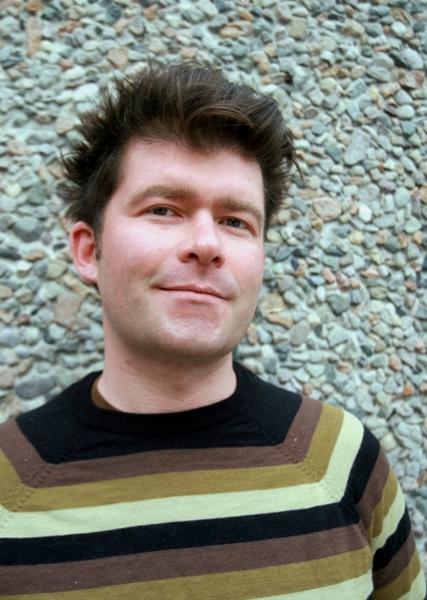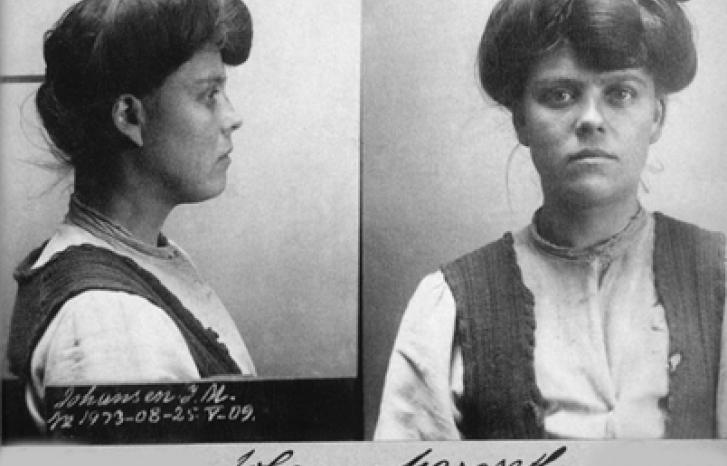For one year criminologist Thomas Ugelvik has conducted fieldwork in two remand units at Oslo Prison. His new book entitled Fangenes friheter (“Prisoners’ Freedom”) shows how inmates who seldom escape from prison are continually trying to elude their life as prisoners.
In the largest men’s prison in Norway they put up daily resistance and explore mental escape routes. The book is also an attempt at gendering Norwegian prison research: How can adult men retain their manhood when they have less freedom than a child in pre-school?
A major theme in Ugelvik’s book is how the use of power breeds freedom. The prison demands that an inmate supplies a urine sample and the inmate refuses. The prison requires that the inmate eat the food he is served and the inmate fries chicken on his table lamp. These small protests entail more than a desire for personal privacy or a hankering for chicken. For the inmates it is a matter of becoming something else, or something more, than prisoners. By reshaping and renegotiating their status, they work day and night to become free men within the prison walls.
“From this perspective, just planning an escape attempt can be a form of successful resistance, even though the inmate never actually intends to escape. The point is not necessarily to be someone who manages to break out of prison, but to be someone who could have done it,” says Ugelvik.
Daily resistance is based on thinking outside of the box and mastering the situation. In this way the inmate can feel like a real man despite the fact that he must ask for permission to take a shower and cannot take care of his family. A crucial aspect of the man’s role is to master and manage things, take responsibility, and influence and change his surroundings according to his own wishes. They have very few opportunities to do this in a system that controls their behaviour down to the minutest detail.
“Many inmates feel that their status as prisoner emasculates them because in prison it’s difficult to live up to the cultural expectations of being a man with a capital M. But by resisting their prisoner status they can also practice their manhood by showing themselves to be unique, creative and ethically involved men,” says Ugelvik.
Cooking as a form of resistance
Manhood comes in different forms. An important indicator of manhood for the inmates in Ugelvik’s study was – paradoxically enough – cooking, which is considered to be a woman’s domain outside the prison walls. Cooking in the cells is prohibited in Oslo Prison.
“Preparing food in a cell with a banned, homemade cooking device is one of the most masculine things an inmate can do because it is a way to fool the system. A successful, illicit meal is something to be proud of,” Ugelvik explains.
He says that the clandestine cell chefs are like inventive entrepreneurs, equipped with creativity and a lot of saved-up doodads that they combine in unorthodox ways to get out of difficult situations. An inmate who we will call “Florin” needed a beater, so he plucked all the bristles out of an old dish brush. “Tarik” was tired of the prison’s instant coffee, so he brewed his own fresh coffee in an empty pickled beet jar. By taking back control of what they put in their mouths, the inmates reclaimed a little piece of their lives. “Tarik” puts it like this:
“Although we’re in prison, this doesn’t mean that we can’t make our situation a little more liveable. It’s important to be creative, to use the resources we have. Then things will be fine. We live in bad conditions, we need to improvise, we must be creative. Then everything will be fine in the end.”
Not like the other prisoners
What is a prisoner? Seen from the outside, a prisoner is a morally inferior person, a dangerous person who has done something wrong. This is why the inmates spend a lot of time trying to rise above the immoral label that the world at large puts on all prisoners. Ugelvik writes that the inmates are very clear that they have done something wrong, but that they distinguish between different kinds of crimes: What they themselves have done is usually less immoral, less harmful, than what the others have done.

“None of them are like ‘the other prisoners’. They distance themselves from ‘junkies’, ‘nitwits’, informers and rapists. They are superior to the poor slobs who can’t deal with daily life. They are older, more experienced, more professional or more creative than the average inmate,” says Ugelvik.
The prison is full of morality. A key ethical imperative in the men’s prison is that a man should not harm those who are weaker than himself, such as a woman. Being a murderer is bad enough, but when a murderer has killed a woman, he does not get high marks from his fellow inmates. He must justify his actions, such as by disqualifying the victim from being a real victim or a real woman.
“Tom” was charged with the murder of his ex-girlfriend. When he spoke with Ugelvik, he referred to the victim as “the person”, not “the woman”. He also relegated his victim to the animal kingdom, saying that his ex-girlfriend was a raging, frothing “50-kilo pit bull”.
“We’re talking about a person who has served time for murder herself, who has used a drill hammer on people’s joint to destroy them,” “Tom” says. “You wouldn’t believe how many female enforcers there are working in Oslo today. There’s no difference any more between men and women.”
Even though “Tom” killed his ex-girlfriend, he is still better than she is: He is not the kind of person who injures other people for money; he is a man with morals.
Taking it like a man
Ugelvik spoke with many inmates who were tormented by thoughts about their victims. They were devastated by what they had done. “Henning” had recently been placed in remand custody for aggravated assault against his partner and had a need to talk about it. But the way he did this put both his manhood and his status as prisoner at stake. “Henning” cried in the community room and blamed his drug addiction for getting the upper hand:
“When I’m sober, I’m the world’s calmest guy. Mine friends can confirm this. But when I’m high on amphetamines, I can’t control my impulses, right?”
When “Henning” blamed his drug addiction, the other inmates felt that he was avoiding taking responsibility for his actions. Thus he broke code after code for male ethics in prison, and his status in the prisoner hierarchy dropped. After this incident, the other inmates turned their backs on him.
“‘Henning’ told a story about an impulsive, out-of-control Mr Hyde who harmed defenceless women and who didn’t take responsibility for it afterwards; a monster, not a man. The fact that Dr Jekyll was sorry later didn’t change anything,” says Ugelvik.
From captivity to freedom
Although Ugelvik writes about the daily lives of imprisoned men, freedom is a recurrent theme in his book. Ugelvik is inspired by the French philosopher Michel Foucault’s concept of freedom, which is different from our everyday use of the concept. According to Foucault, freedom and power are not mutually exclusive. Quite the contrary, there is no pursuit of freedom without power. The inmates are not originally free human beings who are then overpowered and oppressed by the prison system. Ugelvik explains:
“Freedom is only found where there are barriers and boundaries that a person can overcome. It is first when a person meets an obstacle, but overcomes it nonetheless, that we can talk about freedom. From this perspective, the prison is the ideal place to study freedom because control over the individual is so much more extensive there than in other places.”
In prison, freedom is something a person does, not something a person has. Freedom must be created anew each day.
“It is precisely by confronting the many forms of power in prison that the inmates can exercise their freedom in practice. The inmates seize their freedom, carry out resistance and thus become free. Those who exercise their freedom become free. And the person who is free is actually not a prisoner. If freedom is understood as the practical result of successful forms of resistance, then the prison is filled with freedom.”
Translated by Connie Stultz.
Thomas Ugelvik is a criminologist and post-doctoral research fellow in the Department of Criminology and Sociology of Law at the University of Oslo. He is the author of the book Fangenes friheter: makt og motstand i et norsk fengsel (“Prisoners’ Freedom: Power and Resistance in a Norwegian Men’s Prison”), which was recently published by Universitetsforlaget. The book is based on Ugelvik’s doctoral thesis from 2010: Å være eller ikke være fange: frihet som praksis i et norsk mannsfengsel (“To Be or Not to Be a Prisoner: The Practice of Freedom in a Norwegian Men’s Prison”).



